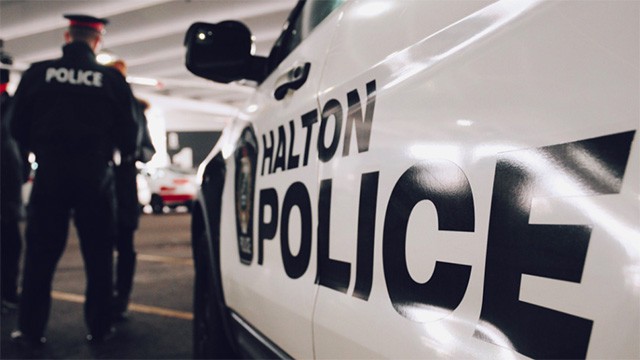Halton Police to Carry Anti-Overdose Drug Naloxone
Published April 13, 2018 at 6:20 pm

All Halton police officers will soon be carrying naloxone kits, or anti-overdose drugs, as the province attempts to battle the opioid crisis.
All Halton police officers will soon be carrying naloxone kits, or anti-overdose drugs, as the province attempts to battle the opioid crisis.
“The safety of the public and of our officers is paramount,” said Halton Regional Police Chief Stephen Tanner on April 12.
“Expanding the deployment of naloxone across our entire front line enhances our ability to deliver emergency life-saving first aid measures, in the same spirit as cardiopulmonary resuscitation (CPR).”
Opioid-related emergency room visits in Halton have doubled between 2006 and 2015, say police.
Provincial data released March 7, 2018, finds there were 1,053 opioid-related deaths from January to October 2017 versus 694 during the same timeframe in 2016.
Naloxone – in the form of Narcan nasal spray, which works within minutes – is a recommended front-line tool.

Photo courtesy of narcankit.ca
Fentanyl was seized by patrol officers in more than 20 cases across Oakville, Burlington, Milton and Halton Hills last year alone.
“While we are fortunate to live in Canada’s safest regional municipality, we must be prepared to deal with incidents that, while low in frequency, pose a real and tangible threat to community safety and well-being,” said Tanner.
But naloxone kits come with controversy.
The issue over investigating naloxone-related deaths is a contentious one, with Ontario’s police chiefs battling the province’s Special Investigations Unit (SIU) in the midst of the opioid epidemic.
Out in B.C., the administration of naloxone isn’t investigated by the SIU.
But in Ontario, the SIU says police must advise the agency when a death occurs during police interaction if naloxone was attempted or administered.
The province’s Special Investigations Unit (SIU) automatically invoked its mandate following two overdose deaths involving Peel police on March 12 in Brampton and on April 6 in Mississauga.
Officers in the Brampton incident were cleared exactly a month later.
Common Sense. https://t.co/efcoKGa0vQ
— Adrian Woolley (@PRPA_Prez) April 12, 2018
HRPS was one of the first police services in the province to strategically distribute naloxone to higher-risk units in Oct. 2016.
The Ministry of Health and Long-Term Care announced funding for life-saving naloxone to all police and fire services across the province in Dec. 2017.
Kits are expected to be rolled out in the coming weeks.
insauga's Editorial Standards and Policies advertising





